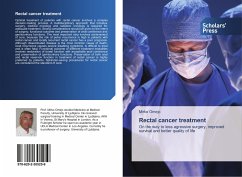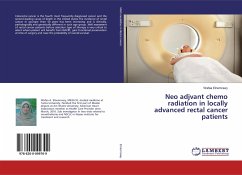Optimal treatment of patients with rectal cancer involves a complex decision-making process. A multidisciplinary approach that includes surgery, medical oncology and radiation oncology is required for adequate treatment. Strong considerations should be given to the intent of surgery, functional outcome and preservation of anal continence and genitourinary functions. The most important step involves achievement of cure, because the risk of pelvic recurrence is high in patients with rectal cancer and locally recurrent rectal cancer has a poor prognosis. Although disseminated disease is the most common cause of death, local recurrence causes severe disabling symptoms, is difficult to treat and is often fatal. Functional outcome of different treatment modalities involves restoration of bowel function with acceptable anal continence and preservation of genitourinary functions. Preservation of both anal and rectal reservoir function in treatment of rectal cancer is highly preferred by patients. Sphincter-saving procedures for rectal cancer are considered the standard of care.
Bitte wählen Sie Ihr Anliegen aus.
Rechnungen
Retourenschein anfordern
Bestellstatus
Storno








